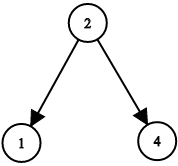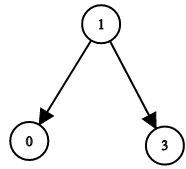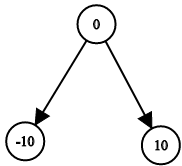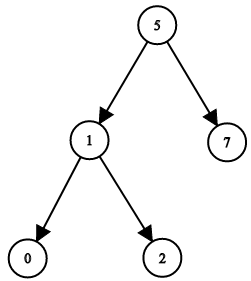1150. Two Sum BSTs
Difficulty: Medium
Topics: Binary Search Tree
Similar Questions:
Problem:
Given two binary search trees, return True if and only if there is a node in the first tree and a node in the second tree whose values sum up to a given integer target.
Example 1:


Input: root1 = [2,1,4], root2 = [1,0,3], target = 5 Output: true Explanation: 2 and 3 sum up to 5.
Example 2:


Input: root1 = [0,-10,10], root2 = [5,1,7,0,2], target = 18 Output: false
Constraints:
- Each tree has at most
5000nodes. -10^9 <= target, node.val <= 10^9
Solutions:
/**
* Definition for a binary tree node.
* struct TreeNode {
* int val;
* TreeNode *left;
* TreeNode *right;
* TreeNode(int x) : val(x), left(NULL), right(NULL) {}
* };
*/
class Solution {
public:
bool twoSumBSTs(TreeNode* root1, TreeNode* root2, int target) {
unordered_set<int> visited;
dfs(root1, target, visited, true);
return dfs(root2, target, visited, false);
}
private:
bool dfs(TreeNode* root, int target, unordered_set<int>& visited, bool populate) {
if (root == nullptr) return false;
if (populate) {
visited.insert(root->val);
} else {
if (visited.count(target - root->val)) return true;
}
return dfs(root->left, target, visited, populate) || dfs(root->right, target, visited, populate);
}
};